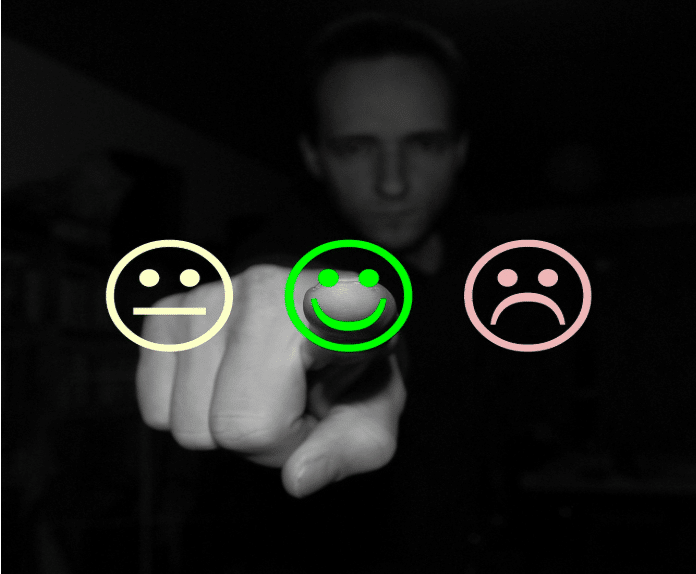If you can measure something, that means you can improve it. The importance of event evaluation is identified with the effective analysis of your performance as an event planner, as well as the estimation of attendance, onsite engagement, operational efficiency, and several further aspects.
Before setting up the metrics, explore the target points and pick the right tools that can bear fruit for your event’s success
What makes an event successful?
To determine the ingredients of your event’s success, it’s a good strategy to use an event checklist. Assign “a success goal” to each stage of event preparation, setting up the requirements for operational and administrative efficiency, and teamwork and attendance benchmarks. Based on this framework, you can create a custom recipe for effective events and learn which points have to be improved in the future.
Why do you need to evaluate the success of an event?
The use of event success metrics helps event planners see the whole picture and track the general performance of their events. Therefore, a comprehensive event evaluation process has numerous advantages:
- checking the completion of long-term and short-term event goals;
- tracking the engagement of attendees to understand which activities work best for your target audience;
- monitoring team success;
- finding ways to increase the event revenue in the future.
How to evaluate the success of your event

In a world where everyone is pressed for time, attending an event should have a good reason behind it. If you manage to understand the value of attendance through the use of effective event evaluation methods, you maximize the chances for enriching your client base in the future. Check out the essential aspects of event organization which you should measure to understand the performance of your strategy:
Attendee satisfaction
The most meaningful feedback that you can get comes from the people attending your event. You can leverage post-event surveys and email communications to find out how the attendees respond to your event. Try to embed only short and comprehensive questions which capture honest responses and demonstrate how your event guests really feel about the event. If possible, offer numeric options for responses to minimize the time spent on filling out the surveys. To catch the moods of attendees during the event, it’s also good planning to employ digital discussion boards, emotion cards, and live streaming.
Monetary outcomes
The efficiency of planning your event is also dependent on how the budget that you spent on event organization relates to the generated revenue. To measure your monetary outcomes, calculate anticipated cost vs. anticipated revenue at the stage of event planning, as well as actual cost vs. actual revenue after the event. This way you get the necessary data for the analysis of your budgeting strategy. Still, keep in mind that monetary revenue isn’t always the principal indicator of event success. For instance, if your primary focus is maximizing sign ups, some budget uncertainties can be allowed if they helps attain the key goal.
Registration numbers
The level of actual attendance is a fundamental aspect of event efficiency:
- The comparison of the number of registrations with the actual check-in rates helps identify the performance of your marketing strategy.
- The estimation of the preferred payment methods shows the key payment channels you should use for ticketing.
- The analysis of check-in choices demonstrates the optimal registration setups for your events.
Media and press hits

Public recognition and media coverage define the success and importance of an event. From small events to epic meetings, the organizing parts usually require attention from media and business press to make the highest impact. Event coverage is also a great metric for measuring event recognition. Monitor media feedback to your meeting by checking the local press, as well as the press platforms leveraged by your sponsors and partners to find out what the public notice is. To automate the process, you can employ a monitoring service like Google Alerts or Mention.
Social media mentions
When social media is talking, it means your target audience is kept tuned in. Set up pre-event online contests and make riveting announcements to build anticipation before the event. After the event, stretch the dialogue on social media by posting video interviews, recounting the funniest moments, and providing statistics. By tracking the contents that other users spread about your event, you get first-hand views that can help you sharpen your strategy.
The best tips for event evaluation
To get the most out of your event evaluation process, use the following tips:
- No surprise effects. To provide the most reasonable feedback, event attendees have to be prepared. Spread the word about the use of discussion boards or live polling during the event, as well as communicate the importance of post-event surveys in the initial stages of event organization.
- Serve it hot. Whether you want to monitor social media mentions or collect post-event surveys, evaluation is a dish that has to be served hot. Remember that the best ways of evaluating an event are those launched early. For the most objective evaluations, set up push notifications in event apps and encourage people to send their concerns or questions to your staff immediately while at the event.
- Don’t annoy. Use an automated event management platform that syncs all the data from registration and email marketing to avoid asking the same questions in surveys. This can annoy your guests and skew the outcome of evaluation.

- Use smart event evaluation forms. Short and comprehensive questions, available scoring and response options, as well as timely delivery, maximize the chances for high response rates and objective evaluation. To make the forms personalized, use automated survey platforms that allow setting up custom fields based on your event’s specifics.
Conclusion
Knowing how to evaluate an event in the right way accounts for avoiding recurring errors in the future. Use automated apps like GEVME Survey that allow you build custom evaluation experiences resonating with the views of your event’s attendees.








